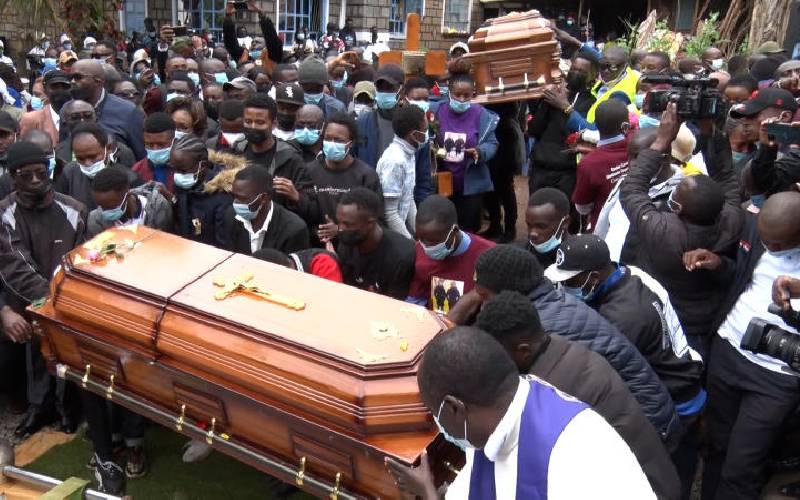×
The Standard e-Paper
Smart Minds Choose Us

Slain Kianjokoma Brothers laid to rest in one grave. [Muriithi Mugo,Standard]
It has almost become fashionable for police officers to vent their anger or solve problems through guns.